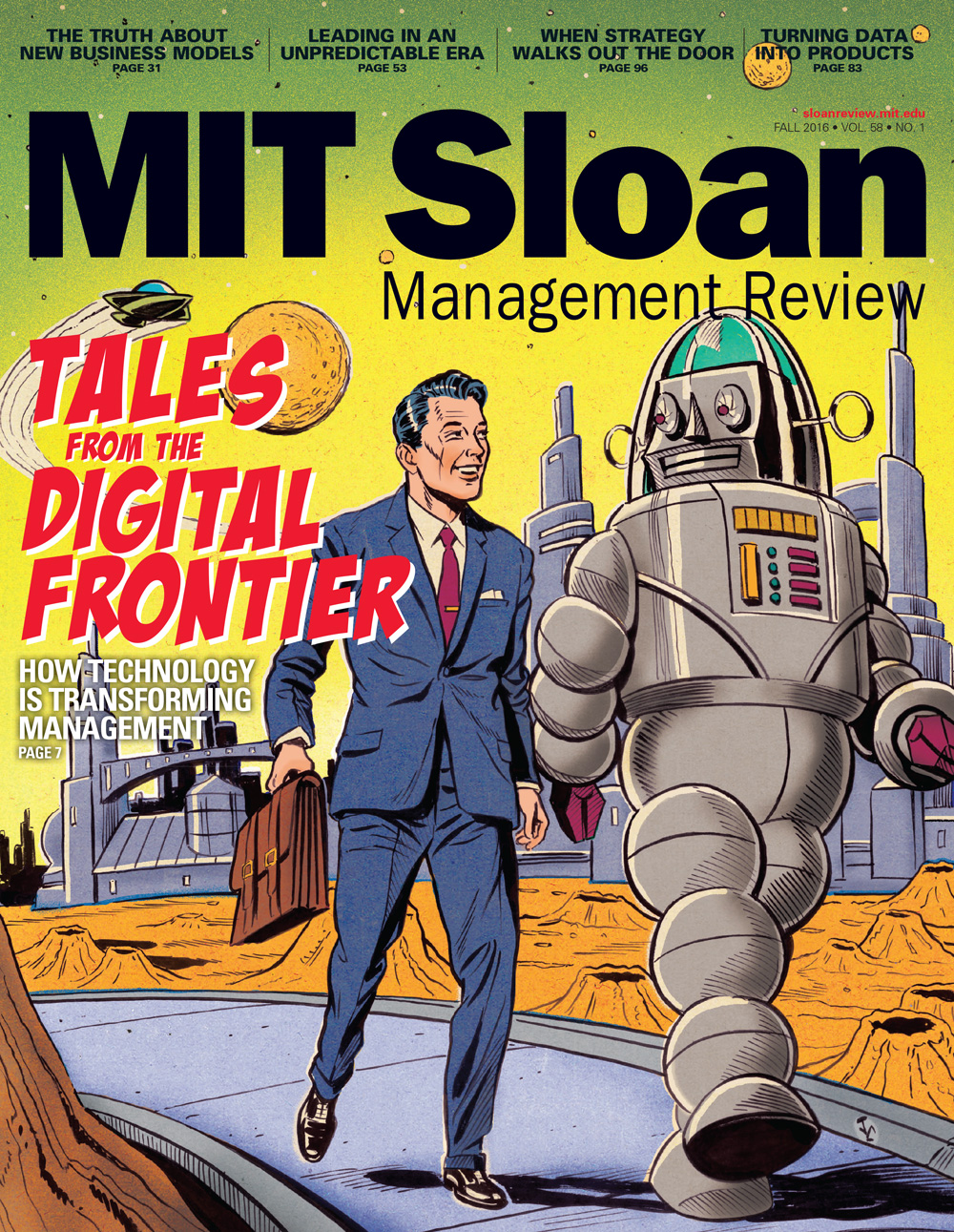Business Models
The Hard Truth About Business Model Innovation
Successful business model innovation requires an understanding of how business models evolve.


 Volume 58, Issue #1
Volume 58, Issue #1
In our debut of Frontiers, we asked 15 leading lights from academia and industry to answer this question: “Within the next five years, how will technology change the practice of management in a way we have not yet witnessed?”
Successful business model innovation requires an understanding of how business models evolve.
Instead of replacing human workers, software robots are an opportunity to augment their skills.
Companies entering global markets should identify an approach that best suits their business model.
Your business may have processes that work now. Does it have agile processes to help it change?
The information economy is giving way to an economy focused on analytics-based data products.
The ongoing digital revolution has created a new set of questions about technology and management.
Communication has changed thanks to social media — with long-term impacts on how companies work.
Digital assistants are taking over repetitive tasks, leaving managers free to manage.
AI’s value for managers lies in its ability to predict equipment failures and assess human emotions.
Digital transformation has been positive in many ways, but some long-term trends are troubling.
Digital technology makes the creative process faster — and cheaper. And that’s great for business.
As technology evolves, managers and organizations will need new skill sets.
Digital transformation is just a step in the journey toward a cognitive technology revolution.
Companies that overlook their employees as sources of strategic insight may find themselves losing talent — and key ideas.
While humans may be ahead of computers in the ability to create strategy today, we shouldn’t be complacent about our dominance.
A strategic framework that eliminates faulty assumptions can help make alliances successful.
This year’s winning article is “Accelerating Projects by Encouraging Help,” by Fabian J. Sting, Christoph H. Loch, and Dirk Stempfhuber.
The power and responsibility of companies to help build a thriving, resilient world has never been greater.
No, software will not render managers obsolete, but you will need to be more skilled than ever before.
Accenture’s chief executive on the challenges of leading in a world that’s almost impossible to predict.
Behind every piece of code that drives our decisions is a human making human judgments about what matters and what does not.
Traditional hierarchies are giving way to market forms of organizing that will recast the role of management.
We are on the cusp of a major breakthrough in how organizations collect, analyze, and act on knowledge.
Algorithms are fundamentally redefining the roles of worker and manager.